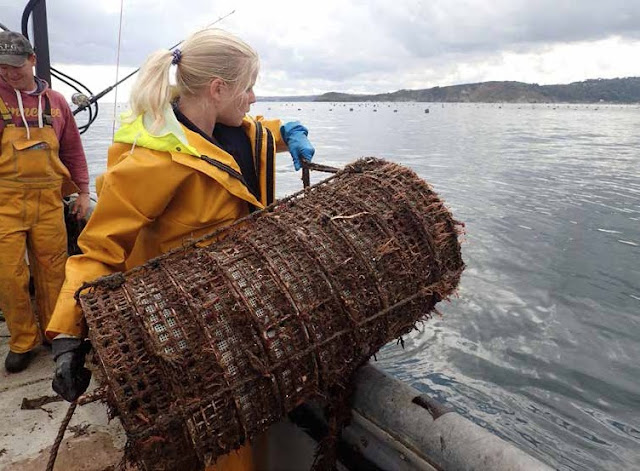by Dr Carly Daniels and Charlie Ellis, The National Lobster Hatchery, Padstow, UK
First published in International Aquafeed, May-June 2016
The European lobster (Homarus gammarus) is an ecologically important species of the North-eastern Atlantic which supports wild trap fisheries that are worth around £30 million each year to the UK alone. By weight the species is the highest-value seafood among those landed regularly in the UK and Ireland, where 75 percent of the ~5,000t annual landings for the species are made. As such, lobsters provide essential diversity to fragile inshore fisheries and vital income for rural coastal economies.
However, populations across its range are pressured by rising exploitation, from which traditional fisheries management has failed to prevent extensive regional stock collapses in the recent past, and now struggles to stimulate recovery. While lobsters have long been transported as a live export commodity, chiefly to France and the Iberian peninsula, emerging markets, particularly those in East Asia, threaten to create additional demand for the species which far exceeds current capture yields.
Improvements in hatchery rearing success have seen a number of recent aquaculture initiatives employed, in the hope of both generating restoration and improved sustainability of wild harvests, and instigating commercial aquaculture possibilities. Of the three major aquaculture practices –resource enhancement, product enhancement, and full grow-out – the majority of hatchery culture of H. gammarus has been applied via resource enhancement, the improvement of wild capture harvests via the release of hatchery reared juveniles (‘hatchery stocking’, including both restocking and stock enhancement).
These strategies should be well suited to H. gammarus, a high-value, fecund species with planktonic early life-stages which are presumed to be subject to considerable recruitment bottlenecks in nature, and monitored trials have demonstrated a proof-of-principle of hatchery stocking.
Read the full article in International Aquafeed HERE.
First published in International Aquafeed, May-June 2016
The European lobster (Homarus gammarus) is an ecologically important species of the North-eastern Atlantic which supports wild trap fisheries that are worth around £30 million each year to the UK alone. By weight the species is the highest-value seafood among those landed regularly in the UK and Ireland, where 75 percent of the ~5,000t annual landings for the species are made. As such, lobsters provide essential diversity to fragile inshore fisheries and vital income for rural coastal economies.
However, populations across its range are pressured by rising exploitation, from which traditional fisheries management has failed to prevent extensive regional stock collapses in the recent past, and now struggles to stimulate recovery. While lobsters have long been transported as a live export commodity, chiefly to France and the Iberian peninsula, emerging markets, particularly those in East Asia, threaten to create additional demand for the species which far exceeds current capture yields.
Improvements in hatchery rearing success have seen a number of recent aquaculture initiatives employed, in the hope of both generating restoration and improved sustainability of wild harvests, and instigating commercial aquaculture possibilities. Of the three major aquaculture practices –resource enhancement, product enhancement, and full grow-out – the majority of hatchery culture of H. gammarus has been applied via resource enhancement, the improvement of wild capture harvests via the release of hatchery reared juveniles (‘hatchery stocking’, including both restocking and stock enhancement).
These strategies should be well suited to H. gammarus, a high-value, fecund species with planktonic early life-stages which are presumed to be subject to considerable recruitment bottlenecks in nature, and monitored trials have demonstrated a proof-of-principle of hatchery stocking.
Read the full article in International Aquafeed HERE.
The Aquaculturists
This blog is maintained by The Aquaculturists staff and is supported by the
magazine International Aquafeed which is published by Perendale Publishers Ltd
For additional daily news from aquaculture around the world: aquaculture-news


No comments:
Post a Comment